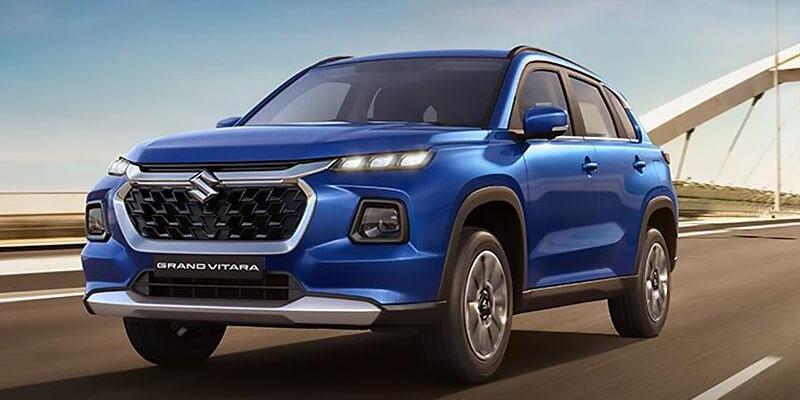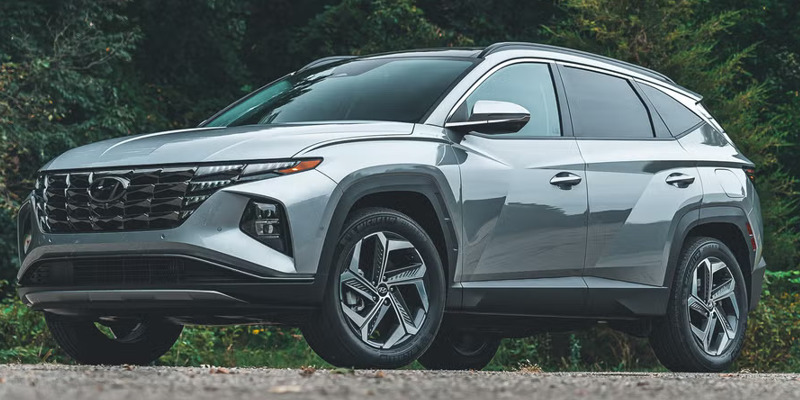
In recent years, hybrid cars have garnered remarkable attention from Indian car buyers as a commendable eco-friendly alternative to regular gasoline vehicles. The technological approach of hybrid cars lies in the ability of the vehicle to combine the features of traditional internal combustion engines with those of electric vehicles.
In this article, readers will explore everything about what hybrid cars are, how these species operate, the brands of cars buyers can access in India, and the benefits and limitations of investing in one.
List of Contents
What is a Hybrid Car?
How Does a Hybrid Car Work?
Types of Hybrid Cars in India?
Key Components of Hybrid Cars?
Benefits of Hybrid Cars
Limitations of Hybrid Cars
List of Popular 10 Hybrid Cars in India
Conclusion
Frequently Asked Questions
What is a Hybrid Car?
As stated above, a hybrid car is an innovative vehicle that features a fusion of more than two power sources for moving the car. Precisely, engineered with a blend of an interior combustion engine (commonly petrol) and one or several electric motors a hybrid car aims to escalate fuel efficiency levels while lessening emissions as opposed to general gasoline-operated vehicles.
How Does a Hybrid Car Work?
The functioning of a hybrid electric car involves an advanced interplay among its internal combustion engine (ICE), electric motor together with battery pack, and control systems. Here’s a shortened breakdown of the whole process:
- Engine Operation: The car starts once the internal combustion engine gets activated, simply as you’ve experienced with any traditional vehicle. Apart from powering the vehicle the engine concurrently keeps on charging the battery pack.
- Electric Motor Assist: in the course of acceleration or under situations where excess power is required, the electric motor starts to support the engine. The motor extracts power from the battery unit and supplies it to the drivetrain, thereby enhancing torque and improving efficiency.
- Regenerative Braking: When a hybrid car applies its brakes, it draws the energy that would otherwise be lost or depleted as heat. Rather than losing this energy, the electric motor converts it into electricity which is stored in the battery for subsequent use.
- Battery Charging: As the car moves, the engine works in conjunction with the regenerative braking system to refill the battery pack. This ongoing charging mechanism ensures that battery cells remain adequately charged for backing the electric motor.
- Energy Management: Equipped with cutting-edge control systems hybrid cars are empowered to evaluate driving conditions, battery status, and power required for improved energy management. The mechanism can determine when to shift between the engine and the electric motor, assuring optimum efficiency and performance.
- Complete Stop: Asthe vehicle stops, the petrol engine and electric motors turn off, although the battery remains activated, allowing the systems including lights, AC, radio, etc. to continue functioning.
Types of Hybrid Cars in India
Hybrid cars can be classified into several types when it comes to the Indian car market. Each of them comes with different features and benefits. The leading types include:
- Full Hybrids: These vehicles can be driven exclusively on the electric motor, their petrol engine, or a conjunction of both. For instance Honda Accord Hybrid and Toyota Camry Hybrid.
- Mild Hybrids: While mild hybrid cars cannot run solely on electrical power, their electric motor supports the oil engine to heighten fuel efficiency with added power as needed. Some of the popular mild hybrid brands include the Honda City Hybrid and Maruti Suzuki Ertiga Smart Hybrid.
- Plug-in Hybrids (PHEVs): These hybrid cars are designed to connect to any external power source for recharging the battery. Typically they can get you a longer electric-only driving range compared to full hybrids. Two good examples of this category include MG Hector PHEV and Tata Nexon EV.
- Parallel Hybrids: In these species, the electric motor and gasoline engine have the power to drive the wheels separately or concurrently. Examples of these hybrid cars available in India are Honda Insight and Toyota Prius.
- Series Hybrids: in these hybrids, the gasoline engine itself charges the battery, which in turn powers the electric motor and supports driving the vehicle. This kind of model is rare in India however, can be found in BMW i3.
Key Components of Hybrid Cars
- Battery: Delivering needed electricity to let the car start along with its accessories.
- DC/DC Converter: Aka Auxiliary Power Module (APM), the tool is intended to convert high-voltage battery power to low-voltage DC for powering different car accessories.
- Electric Generator: Helps in generating energy from the wheels during acceleration and deceleration, which remains stored in the battery pack.
- Electric Traction Motor: The motor propels the vehicle’s wheels by harnessing power from the traction battery pack.
- Exhaust System: works as a channel for discharging the exhaust gases from an engine via a tailpipe.
- Fuel Filler: This nozzle-type device remains attached to the receptacle of a car, facilitating the filling of the fuel tank.
- Fuel Tank: The device is meant for storing gasoline on board until it is required by the engine.
- Internal Combustion Engine: in this section, fuel is introduced into the intake manifold or combustion chamber. As the fuel mixes with air, an ignition of the air/fuel mixture is initiated by a spark from a spark plug.
- Power Electronics Controller: This unit controls the electrical energy flow, developed in a traction battery, thereby managing both the traction and speed of the electric traction motor.
- Thermal Systems: This device is designed to maintain the optimal temperature of the car’s engine, power electronics, electric motor, and other elements.
- Traction Battery Pack: This facilitates the storage of electricity, which is used by traction motors.
- Transmission: It helps by transferring mechanical power from its electrical motor to make the wheel move.
Benefits of Hybrid Cars
- Enhanced Fuel Efficiency: Typically, hybrids can operate using less fuel compared to traditional gas-only cars owing to their potential to shift between power sources while using regenerative braking.
- Lower CO2 Emissions: Using electricity for driving cars lessens CO2 discharge, lowering carbon footprint and making one’s riding eco-friendly compared to gasoline ones.
- Reduced Reliance on Fossil Fuels: using hybrid cars can be instrumental in minimizing dependence on fossil fuels, aligning your endeavor with joint efforts to lessen environmental impact.
- Automatic Start and Stop: Another plus point of hybrid cars that appeal to car buyers is that its engine turns off automatically once the vehicle sits idle and again starts as soon as you press the accelerator.
- Higher Resale Value: The consistently rising price of gasoline has triggered the demand for dual-powered hybrid cars. Noteworthy, this is one basic cause that hybrid cars get you higher resale value.
- Saving of Cost: Though price-wise hybrid cars can seem to be rather expensive upfront, by investing in these energy-efficient cars, they can save a lot on fuel down the line.
- Regenerative Braking System: This innovative braking system helps recharge the battery every time the brake is applied, thereby leading to energy conservation.
- Tax Benefits and Incentives: in some states in India, hybrid vehicle owners are allowed to enjoy tax benefits, special incentives, or reduced road taxes. The government aims to promote special incentives to encourage buyers to go for eco-friendly options.
Limitations of Hybrid Cars
- Higher Initial Cost: Owing a hybrid car involves considerable investments in comparison to their gasoline counterparts due to the complex technology and dual power systems they feature.
- Battery Replacement: The condition of hybrid car batteries typically weakens over time and necessitates replacement, which is a major investment.
- Complex Technology: The intricate nature of hybrid vehicle systems often leads to challenges in repairs, necessitating professional expertise and spare parts that may not be readily accessible.
List of Popular 10 Hybrid Cars in India
| Hybrid Cars in India | Ex-Showroom Price |
| Maruti Suzuki Grand Vitara | ₹11.42 Lakhs onwards |
| Toyota Urban Cruiser Hyryder | ₹11.34 Lakhs onwards |
| Honda City Hybrid eHEV | ₹19.90 Lakhs onwards |
| Maruti Suzuki Invicto | ₹29 Lakhs onwards |
| Toyota Innova Hycross | ₹29.40 Lakhs onwards |
| Toyota Camry | ₹52.83 Lakhs onwards |
| Lexus ES | ₹73.10 Lakhs onwards |
| Mercedes-Benz GLE | ₹1.14 Crores onwards |
| Land Rover Defender | ₹1.61 Crores onwards |
| BMW XM | ₹3.00 Crores onwards |
Note: The above-mentioned prices are subject to changes. Therefore, stay updated.
Conclusion
The emergence of hybrid cars is unarguably a remarkable leap in automobile technology, coming with a great mix of efficiency, lower emissions, and innovation. In India, opting for hybrids can be a logical solution for eco-sensitive consumers with concerns about air quality and fuel economy.
However, their higher price tag and associated costs and maintenance may seem challenging before deciding whether to go for it. Thankfully, with the continuous evolution in automotive technology, hybrids tend to be more refined making them feasible options for car lovers shortly.
Frequently Asked Questions
Q1. What is the difference between a hybrid car and an Electric Car?
The basic difference between a hybrid and an electric car lies in the method of how they are powered. A hybrid is typically powered by an engine and an electric motor, with standalone batteries for each while an electric car uses only a battery alongside an electric motor to operate.
Q2. How long batteries of a hybrid car last?
Typically, hybrid car batteries last for several years, and most car manufacturers offer battery warranties for 8 to 10 years or even more. Also remember that the lifetime of the battery is likely to differentiate depending on usage, maintenance, and driving conditions.
Q3. How do hybrid car batteries charge?
Thankfully, hybrid car batteries automatically get charged through the regenerative braking method, in which energy is stored during braking or deceleration. It can also be charged via its engine or by plugging it method (applies for plug-in hybrid models).
Q4. Is it possible to drive a hybrid car without fuel like petrol?
Yes, hybrid cars are engineered to operate both on an engine and an electric motor. With most hybrid models, depending on their type, you can easily ride short distances using exclusively electric power without using conventional fuels.
Q5. Are hybrid cars suitable for long-distance driving?
Yes, hybrid cars are ideal for long-distance driving. Equipped with both an internal combustion engine and an electric motor, they are empowered to deliver great performance over extended distances. They don’t take long recharge times and let you avoid unwanted anxiety that is generally experienced with electric vehicles (EVs).











